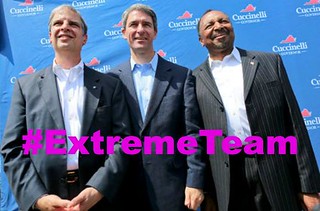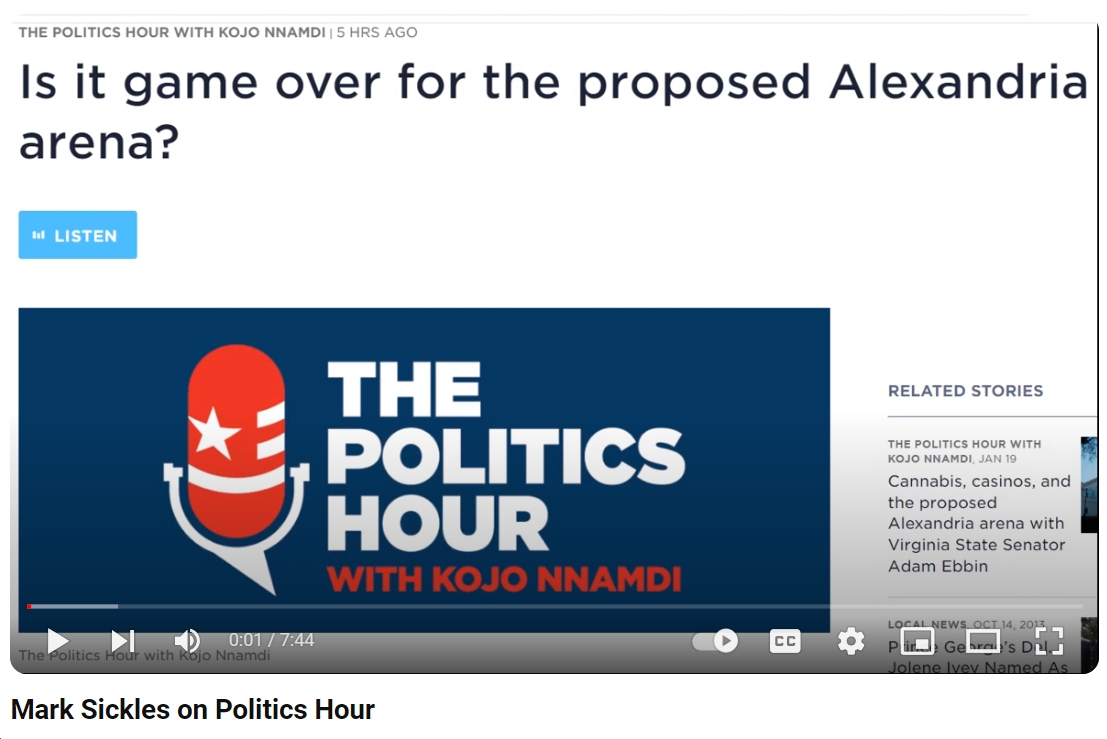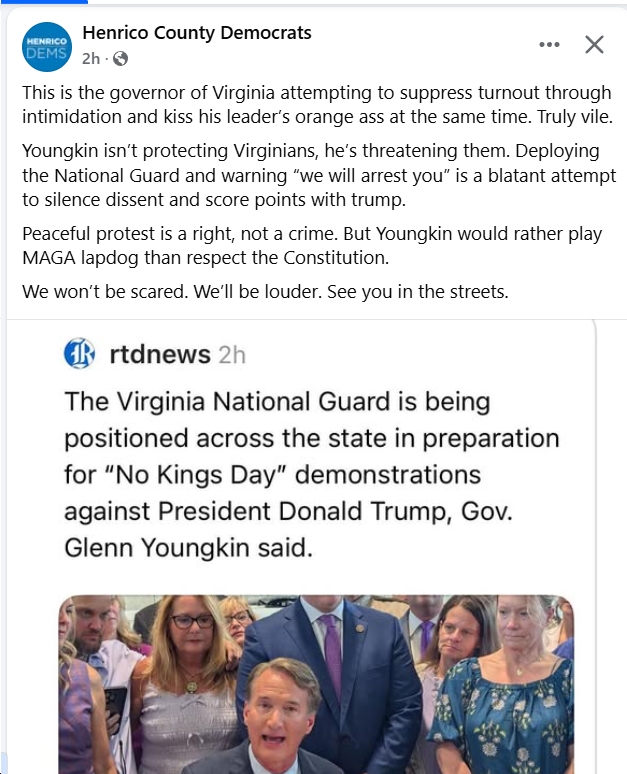( – promoted by lowkell)
 “McAuliffe leads Cuccinelli in Virginia governor’s race! That is the type of story I want to wake up to on a brisk autumn morning. But look beneath the headline-worthy results and there are some big concerns ahead for Virginia Democrats. There is just over a month remaining to avoid another 2005-style outcome, where the joy of sending Tim Kaine to follow in Mark Warner’s footsteps was mixed with the agony of defeat for the rest of our statewide ticket and disappointment at the lack of coattails in the General Assembly. Like any good remake, the cast of characters in 2013 is different from the 2005 original, but the ending may be the same.
“McAuliffe leads Cuccinelli in Virginia governor’s race! That is the type of story I want to wake up to on a brisk autumn morning. But look beneath the headline-worthy results and there are some big concerns ahead for Virginia Democrats. There is just over a month remaining to avoid another 2005-style outcome, where the joy of sending Tim Kaine to follow in Mark Warner’s footsteps was mixed with the agony of defeat for the rest of our statewide ticket and disappointment at the lack of coattails in the General Assembly. Like any good remake, the cast of characters in 2013 is different from the 2005 original, but the ending may be the same.
In 2005, Jerry Kilgore ran an offensive, dirty campaign against Tim Kaine. The tax increases passed by the Republican General Assembly divided Kilgore’s party; his campaign was a bumbling effort to avoid attacking the turncoats that helped Mark Warner while also promising to roll back the historic revenue increase that provided for a significant investment in public education. Usually if you can’t say anything nice, you’re not supposed to say anything at all, but Kilgore instead found that his only message was to go negative against Tim Kaine. We all remember the October ad referencing Hitler and Tim Kaine’s religious and moral objection to the death penalty.
Kilgore’s fate was sealed, but only narrowly. Russ Potts, a moderate Republican exiled by his party’s primitive proto-Tea Party wing, provided a vehicle of protest for moderate Republicans fed up with Kilgore. Polling as high as 4 to 5 percent in the month before the election, Potts received just over 2% of the vote. It might not sound like much, but it’s the highest showing for a third party candidate for Governor of Virginia since William Story’s 13.38% in 1965 as a Virginia Conservative (ignoring Henry Howell’s 49.28% in 1973 when the Democrats did not run a candidate). A minor shift of other swing voters to Tim Kaine, based primarily in the suburban counties across the Commonwealth, made up the rest of the margin of victory over Kilgore.
In 2013, the Republican Party of Virginia has replaced the country bumpkin Kilgore with the Tea Party zealot Ken Cuccinelli. Faced with a signature legislative accomplishment, Cuccinelli turned hard right against Governor Bob McDonnell’s transportation plan. This split could have provided an opening for Bill Bolling to run as an independent, a choice that Big Bill is probably regretting right now as he watches the no-name Sarvis polling in the double digits. Like Kilgore, Cuccinelli cannot run on any legislative accomplishments from Richmond, and now finds himself without a popular Governor to latch his campaign to. When you don’t have anything positive to say about yourself, the only campaign tactic left is to attack your opponent and drag them through the mud.
The big splash for Potts came from Kilgore overstepping the rules of common decency. For Sarvis, the obscure Libertarian from Northern Virginia, it’s a different story of being at the right place at the right time. Some will try to argue that Sarvis represents a protest vote against both parties, but McAullife barely moves from 47% to 49% when Sarvis is not listed. Cuccinelli surges from 39% to 44%, demonstrating that Sarvis is pulling away Republican support. And don’t be fooled, there’s little evidence that these are moderate Republicans. The Washington Post poll locates the base of support for Sarvis:
In the largely rural region that includes the Shenandoah Valley, Southwest and part of Southside Virginia, Sarvis is getting 19 percent of likely voters – clearly hurting Cuccinelli where the Republican should be performing strongest. Sarvis also does well among younger voters, taking 15 percent of those between 18 and 49.
The recently released Bearing Drift poll, which I won’t link to, found a similar trend of Sarvis doing the best in the 4th and 5th Districts, the rural parts of southern Virginia that voted heavily for George Wallace in 1968.
There’s no profile for these voters that combines both a moderate, independent streak opposed to Cuccinelli’s war on women, gays, and all Americans outside of the Tea Party circus, with a geographic concentration in the most rural, conservative parts of the state. Cuccinelli has woken up in his own worst nightmare, a campaign where the Tea Party anger that he has spent a lifetime building is now being turned on him because he’s seen as just another establishment Republican at a time in which Tea Partiers are angry at their own leadership, including Eric Cantor, for not shutting down the government over defunding Obamacare. Don’t let reporters spin you on Sarvis representing independent and moderate Republicans fleeing the GOP, those are just cute stories and quotes thrown in by lazy reporting. Someone who wavers on voting for Cuccinelli, but returns to the Republican Party downticket for E. W. Jackson, is not a moderate.
And it’s downticket where the concerns about 2005 are biggest.
In 2005, Kilgore’s October meltdown barely trickled down to the rest of his party. Bolling and McDonnell both won narrow victories, while all but one Republican incumbent in the House of Delegates was able to hold on against Tim Kaine’s suburban tsunami. Kilgore managed to alienated voters so successfully with his dirty tactics, it was almost too easy for the key demographic of moderates backing Tim Kaine and Russ Potts to swing back to the GOP downticket.
Virginia Democrats are experiencing deja vu, Northam and Herring are neck and neck with their extremist opponents according to the Washington Post. There’s no reason that E. W. Jackson should even be in the running for Lt. Governor, but with voters not yet turned on to the fact that he is a total laughingstock it’s concerningly easy to imagine an October in which the emphasis continues to be on Cuccinelli alone, with not enough done to inform low information voters about the extremism of the entire GOP Ticket.
The classic Warner playbook is to talk about how this specific Republican candidate is too extreme and out of touch with Virginia values, and to then trot out the same tired cast of former Republican officials long since forgotten within the GOP to provide quotes. The recent ad by Warner in support of McAuliffe is great, but it continues the same old Virginia Democratic strategy of always focusing on the individual Republican at hand, not attacking the entire party for being rotten. The ad is of little help to Northam or Herring, let alone the struggling candidates for the House of Delegates.
In the month ahead, if history is any guide, Sarvis will collapse and his supporters will start the journey home to Cuccinelli. This natural tightening in the race may alarm some McAuliffe supporters, but it’s natural. My advice over the next month, in addition to keeping up with your canvassing activities, is to respond to the tightening in the Governor’s race by giving more assistance to the local races for House of Delegates. The big groups will make sure that McAuliffe has all the firepower he needs to win this. But the last thing we need is for McAuliffe to have to face Lt. Governor E. W. Jackson, Attorney General Mark Obenshain, and a House of Delegates that is largely unchanged from now.

















